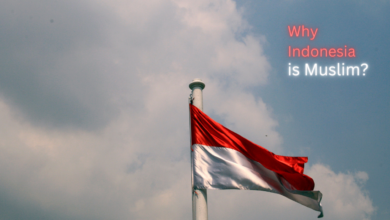What is Arafat in Islam?

Introduction
In the Islamic faith, the Hajj pilgrimage is one of the five pillars and a profound spiritual journey undertaken by Muslims from around the world. Among the essential components of Hajj is the Day of Arafah, a pivotal moment that holds immense significance in the hearts of Muslims. Arafat is not just a physical location; it represents a profound spiritual experience and a day of intense devotion.
The Location and Historical Significance
Arafat is a plain located approximately 20 kilometers southeast of the holy city of Mecca in Saudi Arabia. It is an essential stop during the Hajj pilgrimage, particularly on the 9th day of Dhu al-Hijjah, the last month of the Islamic lunar calendar. This day is known as the Day of Arafah. The plains of Arafat have historical and religious significance rooted in the traditions of the Prophet Ibrahim (Abraham) and his family.
According to Islamic tradition, the Prophet Ibrahim and his son Isma’il were commanded by Allah to build the Kaaba in Mecca. The plain of Arafat is believed to be the place where Adam and Eve reunited after being separated upon descending to Earth. It’s also said that this was the spot where Adam received forgiveness from Allah for his mistake, signifying the importance of repentance and seeking forgiveness.
The Rituals and Spiritual Significance
On the Day of Arafah, millions of pilgrims gather on the plains to engage in acts of worship and devotion. For those undertaking the Hajj pilgrimage, the stay at Arafat is a crucial aspect of their journey, and for Muslims not performing Hajj, fasting on this day holds great significance.
Standing in Devotion: The central ritual of the Day of Arafah is the act of standing in devotion to Allah. Pilgrims gather on the plain from dawn until sunset, engaging in prayers, supplications, and seeking forgiveness for their sins. This act symbolizes the Day of Judgment when people will stand before Allah.
Repentance and Forgiveness: Arafat is a day of reflection, self-purification, and seeking forgiveness from Allah. Muslims believe that sincere repentance on this day can lead to the forgiveness of past sins. The humility displayed on Arafat is a reminder of human frailty and the need for divine mercy.
Dua (Supplication): Muslims use this day to make heartfelt supplications, seeking blessings for themselves, their families, and the entire global community. The act of raising one’s hands in prayer is a symbol of dependence on Allah’s mercy and benevolence.
Fasting: While not on Hajj, Muslims who are not performing the pilgrimage are encouraged to fast on the Day of Arafah. Fasting is seen as a way to seek Allah’s favor, as it’s believed that fasting on this day expiates sins of the previous year and the coming year.
The Lessons of Arafah
The Day of Arafah carries profound lessons that extend beyond the physical act of standing on the plains. It emphasizes the concepts of humility, unity, and the universality of the human experience. Muslims from all walks of life, regardless of their ethnicity, nationality, or social status, come together on this day to stand side by side as equals before Allah, reinforcing the idea of the global Muslim community as one Ummah.
Arafat also underscores the themes of repentance and forgiveness. It serves as a reminder that human beings are prone to mistakes and sins, but Allah’s mercy is boundless for those who sincerely seek His forgiveness.
In essence, Arafat embodies the essence of Islam: submission to Allah, seeking forgiveness, and fostering compassion and unity among believers. It is a day of spiritual rejuvenation, an opportunity to reflect on one’s actions, and a reminder of the transient nature of life.
Conclusion
Arafat in Islam is not merely a geographical location; it’s a spiritual state of mind and a day of unparalleled significance. The rituals and practices observed on the Day of Arafah underline the core values of Islam, including humility, devotion, and seeking forgiveness. This day encapsulates the essence of the Hajj pilgrimage – a journey of the heart, soul, and body, where Muslims reaffirm their faith, seek Allah’s mercy, and reflect on their roles in the grand tapestry of creation.
FAQs about Arafat in Islam
What is Arafat in Islam?
Arafat is a significant location and ritual in Islam. It refers to the plain located near Mecca where pilgrims gather on the 9th day of the Islamic month of Dhul-Hijjah during Hajj, the annual pilgrimage.
What happens on the Day of Arafat?
On the Day of Arafat, pilgrims stand in devotion and supplication on the Arafat plain. This is a crucial part of Hajj, and Muslims believe that standing on Arafat while sincerely seeking forgiveness can lead to the forgiveness of sins.
Is Arafat the same as Mount Arafat?
No, Arafat and Mount Arafat are distinct. Arafat refers to the entire plain where pilgrims gather, while Mount Arafat is a specific hill within the plain. Standing on the hill is optional, but standing anywhere on the Arafat plain fulfills the Hajj requirement.
What is the significance of Arafat in Islam?
Arafat holds deep spiritual significance as it is believed to be the place where Adam and Eve reunited after being separated on Earth. Additionally, it’s the place where Prophet Muhammad delivered his Farewell Sermon during his final Hajj, emphasizing unity and equality among Muslims.
What do pilgrims do on Arafat during Hajj?
Pilgrims spend the day in contemplation, prayer, and supplication, seeking forgiveness from Allah and making heartfelt du’as (prayers). It is a time for self-reflection, seeking repentance, and strengthening one’s relationship with Allah.
Can Muslims outside of Hajj engage with Arafat’s significance?
While the Day of Arafat is primarily associated with Hajj, Muslims outside of the pilgrimage can engage in fasting, prayer, and seeking forgiveness on this day. Fasting on the 9th day of Dhul-Hijjah is highly recommended for those not performing Hajj.






